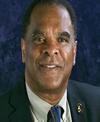Health Equity—More than Equal Access
Much attention has focused on reaching, educating, and enrolling uninsured people in health coverage programs. Getting people health coverage is one way to reduce racial and ethnic disparities in health, but it does not achieve health equity—going beyond eliminating differences among groups of people and attaining the highest level of health for everyone.


